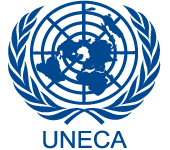Stakeholders Discuss on Implementation of Global Compact for Migration Africa - ENA English
Stakeholders Discuss on Implementation of Global Compact for Migration Africa

August 29, 2021 (ENA) Stakeholders involved in the migration sector met to share their perspectives on a cohesive implementation of the Global Compact for safe, orderly and regular Migration (GCM) in Africa, according to press release by the United Nations Economic Commission for Africa (UNECA).
The meeting was aimed to review the GCM’s implementation, discuss pressing challenges, share good practices and make recommendations to the first Africa Regional Review of the Global Compact for Migration taking place on 31 August and 1 September.
The meeting comprised of two main activities with one focused on summary reports drawn from the four stakeholder consultations held since December 2020, while the other featured discussions on the GCM’s implementation progress, challenges and good practices in Africa.
In her opening remarks, ECA Gender, Poverty and Social Policy Division Director, Thokozile Ruzvidzo said that GCM offers opportunities to boost migration benefits for migrants, origin, and transit and destination societies.
While its adoption is a milestone, the GCM’s implementation remains key, she noted.
Saying the meeting allows them to reflect on the status of the GCM’s implementation by African member States since its adoption in 2018 from stakeholders’ perspectives, she urged all stakeholders to continue their active engagement in ensuring the GCM’s vision of safe, orderly and regular migration is achieved in Africa.
In the reports and the discussion, stakeholders expressed that while advances have been made in implementing the GCM in Africa, the progress remains slow, with the COVID-19 pandemic undermining the momentum.
They raised concerns over various aspects of migration, especially on human rights violations, border governance and corruption, access to basic services, trafficking, missing migrants, detention, forced return and reintegration.
Limited data, uneven commitment to the GCM, lack of legal identity and unawareness of regular migration pathways, stakeholders stressed, put migrants at greater risk and weaken better targeting of policies and programmes.
They outlined a range of practices including migrant labor permits, training of border officials as well as the role of human rights commission in advocating with governments on behalf of undocumented migrants that governments could replicate to meet the ambitious vision of the GCM.
Recognizing the challenges, stakeholders recommended more research into climate-induced migration, bilateral labor agreements and child protection, efforts to provide all migrants’ legal identity, partnerships for safe return, anti-discrimination laws, harmonized remittance market, accountability measures and enhanced consular services.
They identified a significant data gap in the sector, which could be addressed by national and local authorities investing in data collection to bridge the gulf between evidence and policy while using technology to share information for transnational cooperation.
In 2019, 26.5 million people in Africa were migrants. They confront a spectrum of social and economic challenges across all sectors of society.
Hosted by the Kingdom of Morocco, the meeting was organized by the UNNM in collaboration with the ECA, the IOM and the African Union Commission.
Some 100 stakeholders, including members of local authorities, civil society, business, academia, human rights groups, media and humanitarian bodies, attended the meeting.